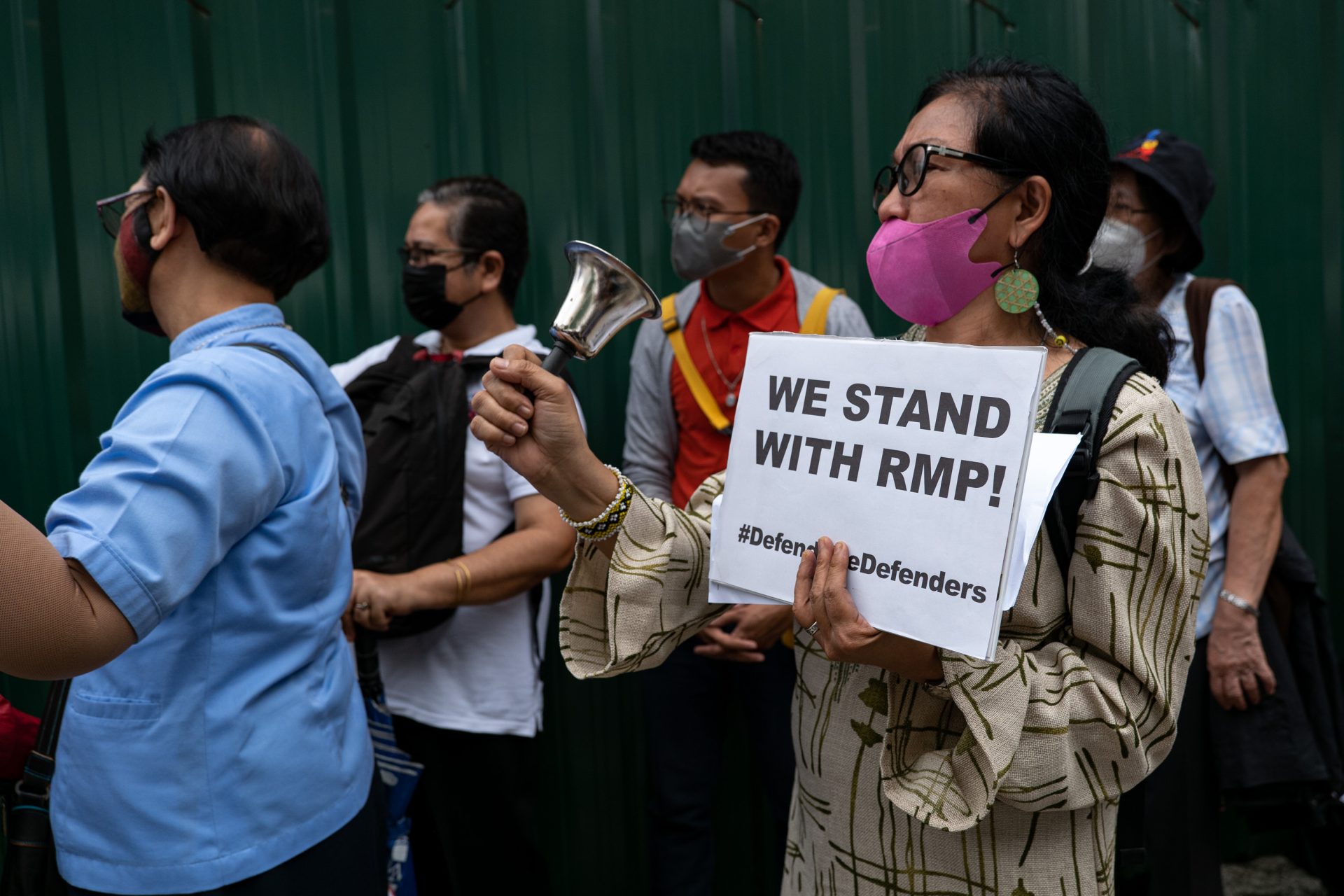Human rights alliance Karapatan expressed support for the Rural Missionaries of the Philippines as the Catholic missionary group faces another hearing of a civil forfeiture case filed by the government’s Anti-Money Laundering Council on Wednesday, February 8.
Aside from the civil forfeiture case, 16 individuals, including four nuns who are members of RMP, are facing non-bailable charges before an Iligan City court for alleged violation of Section 8 of Republic Act 10168 or the Terrorism Financing Prevention and Suppression Act of 2012 punishable with 40 years imprisonment, and a fine ranging from PhP500,000 to one million pesos.
In 2020, a civil forfeiture case has been filed against RMP’s 15 bank accounts over allegations of “financing terrorist activities.”
The RMP is a religious organization, which is inter-congregational and inter-diocesan in character, of religious women and men, priests, and lay people that was founded on Aug. 15, 1969.
It is a “mission partner” of the Conference of Major Superiors in the Philippines, formerly the Association of Major Religious Superiors in the Philippines.
Cristina Palabay, Karapatan secretary general, said the ongoing civil forfeiture and terrorism financing cases resulted in the “violation and arbitrary and unjust restriction” of the rights of the missionaries and the “further deprivation of the impoverished and marginalized communities” that they serve.
“We assail these moves as a prelude to the unjust and arbitrary designation of the RMP as ‘terrorist,’” said Palabay in a statement. “These measures are patently anti-poor,” she added, citing RMP’s more than 50 years of service to marginalized communities of farmers, indigenous people, fisherfolk and agricultural workers.
She described the terrorist financing charges as “reckless, false and baseless” because the RMP has “consistently passed independent checks and reviews by strict and reputable funding agencies,” including the European Union.
“Red-tagging, terrorist branding and hailing to court the real people’s heroes like the RMP nuns and development workers expose them to attacks and violations of their rights by State security forces and put their lives in danger,” Palabay said.
She said laws “are clearly being weaponized against those critical of government policies, and those who fill the vacuum by providing much-needed services to the most severely neglected communities.”
“The State must immediately cease and desist from this nefarious practice and provide support and encouragement instead of persecuting and prosecuting activists with lifelong pro-poor advocacies,” said Palabay.







